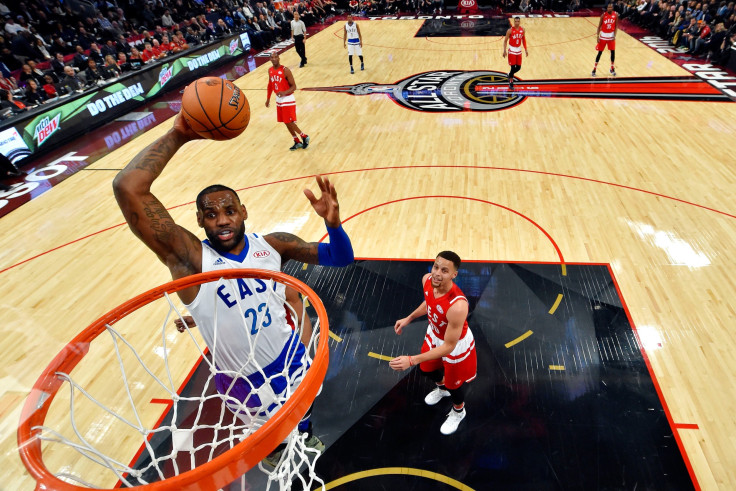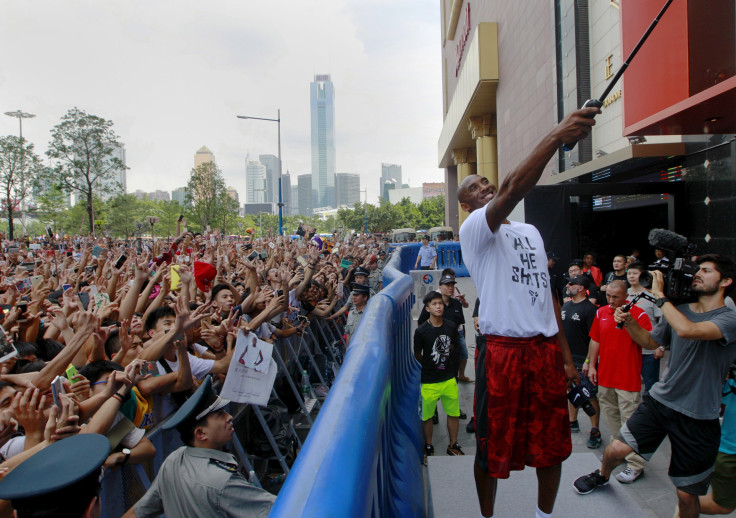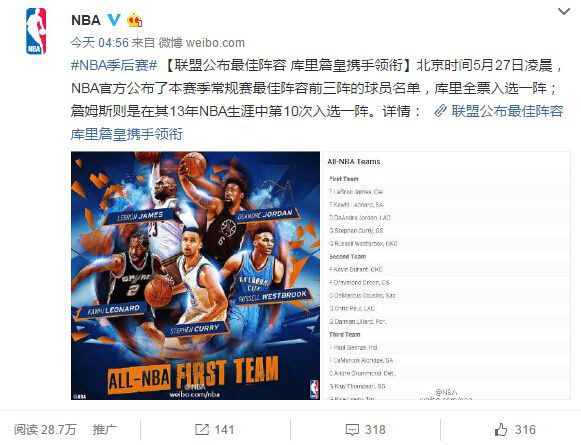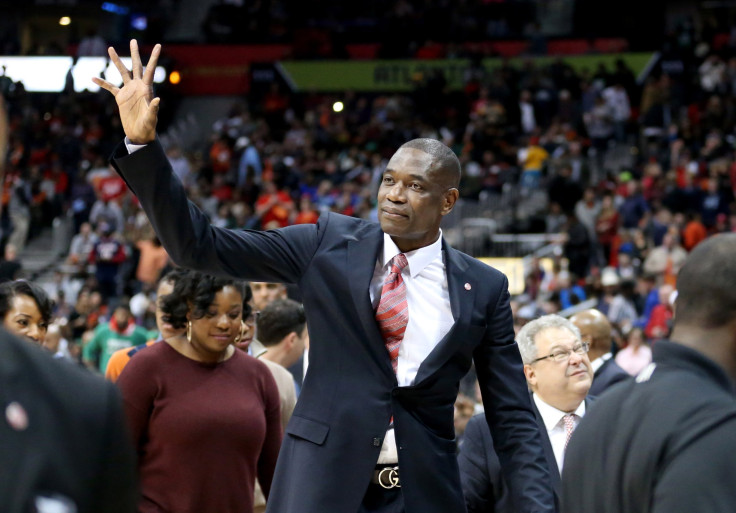How The NBA Is Using Tech And Tencent To Conquer China

When the Golden State Warriors’ Steph Curry plants his feet behind the 3-point line in the NBA Finals Thursday night and lets his shot go against the Cleveland Cavaliers, millions of Americans will be watching it live on television in bars or on their couches.
Meanwhile, halfway around the world, millions of Chinese will take in the action — mostly on their cell phones — at exactly the same moment, albeit at 9 a.m. local time. More than Buicks or iPhones, the must-have American product in China is the NBA.
“There’s nothing like being in China, to see how much they appreciate the game of basketball, to see how they love you,” said Dikembe Mutombo, 49, who retired from professional basketball in 2009 and has visited China several times a year tending to business ventures for more than a decade.
The NBA has assiduously cultivated this following. Back in the 1990s, China Central Television (CCTV), at the time the leading and only national TV channel in China, would broadcast games courtesy of DVDs sent by the NBA. In the mid-2000s, the NBA was the first major sports league to allow YouTube to carry clips, further granting it entrée to foreign markets such as China.
Today, NBA games are carried live at the crack of dawn by a multitude of TV networks, but its most important distribution deal is one it completed by selling digital rights to the Chinese internet behemoth Tencent Holdings in 2015, which is putting 600 games on hundreds of millions of tablets, mobile phones and personal computers. In the league’s 2015-16 season until May 6, 641 million viewers tuned into live NBA programming through Tencent with 65 percent of that traffic on mobile devices.

“I remember we used to watch NBA playoffs on TV by skipping classes. Now we can watch them anywhere, anytime,” Jordan Li, 32, told International Business Times in an interview over the Chinese messaging application WeChat.
Growing up, Li, who was literally named after basketball legend Michael Jordan, would watch games at a friend’s home since his family could not afford to buy a TV set at the time. Now, he can watch a live game anywhere, as long as he has cell service. That accessibility is key for Li, who has been covering the NBA for more than eight years — mostly recently for Lanxiong Sports, a digital sports news site he founded in 2015 — and is based in Beijing.
NBA’s fandom is visible everywhere in Beijing and beyond. Riding buses, standing on trains, sitting in offices, millions of Chinese basketball fans are tuned into a live game that for them is a way to launch their school day or workday. The mobile option allowed people such as NBA China CEO David Shoemaker to have caught the last game of the Eastern Conference finals between the Cavaliers and Toronto Raptors while walking through an airport. A few taps on his smartphone, and he was watching a free live stream of the game.
It wasn’t always this easy. The deal-making in China dates back to CCTV in 1987 when fans were limited to watching on TV. It has since expanded to BTV, GDTV, GZTV, NBA TV, NowTV, Sina and, most recently, Tencent. Why Tencent? Well, for starters, the NBA’s traditional partners Google and YouTube are now blocked in China, as is Facebook. But the real answer is obvious to anybody in China. “Tencent is an indispensable part of people’s lives. They’re blogging on QQ and reading news all day through the news app and video. We put our games in a place where a vast majority of people already are,” Shoemaker said.
Indeed, Tencent is the biggest internet holding company in China. Its properties include the social network QQ, microblogging site Weibo and messaging service WeChat. “It’s one of, if not the, largest digital media company in the world. It would be better to think of it as Facebook, Twitter, AOL and the App Store,” Shoemaker said.
To watch the U.S.-based basketball games, smartphone owners simply need to download the NBA Tencent app. They can also watch on tablets or on desktop PCs through Tencent’s website. Fans can pay 30 renminbi ($4.56) for access to 33 games per month. All playoff games are free.
At Tencent, it’s not just about streaming a feed. The company is flying more than 10 people, including reporters, producers and camera operators, to cover the NBA Finals in San Francisco. The staffers will be broadcasting live commentary as well as creating pregame content and conducting postgame interviews.
That Facebook, Instagram and Twitter are blocked in China is the primary reason 119 NBA players have Weibo accounts, with the Golden State Warriors’ Harrison Barnes and the Miami Heat’s Dwayne Wade two of the most-followed players on the platform.

“I am more popular in China than I am in America,” Mutombo said. And he’s speaking not anecdotally but statistically: The Naismith Memorial Basketball Hall of Famer has almost 500,000 followers on his Weibo account while he has just 39,000 on Twitter and only 35,621 on Facebook.
Indeed, Chinese fans are avid consumers of NBA content, wherever it may be. It was a habit that caught the interest of Tencent early on in the league’s expansion. “The NBA has been popular in China since its very entry. And just because of that, QQ.com has been keeping a special eye on the coverage of the NBA since QQ.com was launched in 2003 in China,” Juhong Chen, chief editor of Tencent’s online media group, wrote in an email to IBT.
In the eyes of a sports journalist, the Tencent relationship, even with its level of exclusivity, was a perfect scenario. “If there is an ideal exclusive partner for NBA in China, it’s Tencent. Tencent has the best technology and the needed budget to improve the quality of live games,” Li wrote to IBT on WeChat, the mobile app developed by — you guessed it — Tencent.

The deal is moving the needle enough for Tencent to be mentioned in earnings. “Under our new exclusive partnership with NBA, online video views of NBA games grew significantly in China and became increasingly attractive to large-budget advertisers,” Tencent reported while delivering its financial results for the first quarter of 2016.
Fans such as Li say they’d like even more content. “[I’d like] more game packages. Like all the games for one team in a season, which die-hard fans will for sure appreciate,” Li wrote.
© Copyright IBTimes 2024. All rights reserved.





















